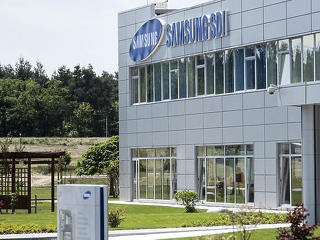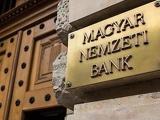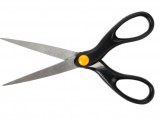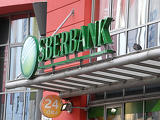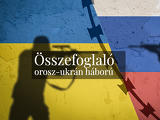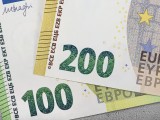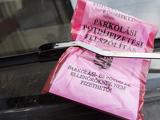A cikk magyar nyelvű változata
According to the International Data Corporation the largest slice of the software market is that of applications. The volume of this segment has reached over 135 billion dollars. The Business Software Alliance (BSA) however, warns that the proportion of pirate software used in the East European region is extremely high (76 per cent). This is causing lost tax revenues running into the hundreds of millions for the countries included in the study. The greatest problem for Hungarian companies are related to data protection.
According to the latest study by the Business Software Alliance, the market value of illegally copied software is over 450.1 million dollars annually. The study covered five East European states: Bulgaria, the Czech Republic, Poland, Hungary and Russia. According to the research, if illegal software usage were reduced to an average of around 27 per cent, 13,000 new jobs would be created and the tax revenues of the five countries would increase by 319 million dollars by 2001. Over the past few years growth in the IT
sector has been dramatic. The rate of growth looks to be stabilising at around 7.4 per cent. All this means that the sales volume of this sector could increase to 1.1 billion dollars next year, from the current figure of around 820 million dollars. This rosy picture, however, is overshadowed by the fact that illegal software usage is extremely high in the countries surveyed.
The front runners in pirated software usage are Bulgaria and Russia. In the former country nine out of every ten programmes have been illegally copied, while this ration is also as high as 92 per cent in the latter. In Hungary 57 per cent of computer programmes are bootlegs. These statistics also mean that - in contrast to the tax revenue increase mentioned above - the tax revenues of the five countries will only increase to 251.1 million dollars from the current 183.4 million.
Manufacturers, incidentally, sold boxed programmes - not for individual development - to a value of 135 billion dollars. The International Data Corporation considers the applications market to be the largest segment of the software market as a whole, with 63 billion dollars total turnover. This represents 15 per cent growth, although - according to analysts - a great factor in this was the Y2K problem, and a significant increase in the sales of industry-specific software. The rate of growth will remain at this level over the next five years, thanks to the fact that software companies are trying to break into new markets. These endeavours could include the winning over of small enterprise.
The second largest slice of the market - to use the IDC terminology - is the "system-infrastructure" software market. This includes operating systems, for example. The total turnover of this segment is already well over 41 billion dollars, showing annual growth of around 15 per cent. Among the reasons for the growth are the reduction in prices by Microsoft and the expansion of the UNIX-server market. These factors will continue to have a beneficial effect on the market in future, with revenues increasing up to 50 per cent by 2002, to top 68 billion dollars.
The lowest revenue (31.2 billion dollars) was achieved from application development tools. The IDC forecasts 10.6 per cent annual growth in this segment until 2002.
Despite the fact that certain trends arrive in Hungary slightly later than elsewhere, the market researchers believe that the country is on a par with the more developed regions. The increasing maturity of the Hungarian market is signified by the fact that it is the services market that is showing the fastest growth, while hardware sale are slowing. Despite this, per-capita IT spending is hardly over 100 dollars. This is well below the EU average. IT spending in proportion to GDP has increased by 2.2 per cent. Thanks to this the volume of the Hungarian IT market has past the 1 billion dollar mark.
Another IDC report also mentions the Hungarian situation with regard to hardware. Annual computer sales are around 180 units, and Compaq is market leader here, just as it is internationally. Compaq's market share is around 13.8 per cent. Second and third place, however, are held by Hungaria companies Muszertechnika and Albacomp. IBM and Hewlett Packard are the leaders in the sales stakes. The maturity of the market is shown by the fact that the decisive proportion of computers sold are brand-name machines, with "no-name" hardware in the minority.
With this admirable market growth comes the problem of the vulnerability of Hungarian computer systems. Data-protection specialists estimate that only 10 per cent of Hungarian companies use any sort of security system, and these are mainly the Hungarian subsidiaries of multinational companies. The
majority, however, can be hacked with relative ease.
Until recently the home page of Budapest Metropolitan Council was attacked several times a day. According to data from the national police force a few hundred computer crimes are committed a year. In 1998, for example, there were 410 cases. Of these, three were significant, resulting in high material losses. Unwanted visitors carried out 2,414 cases of unauthorised data handling.
Although only indirectly related to the software industry, it does no harm to take a brief look at the current situation with regard to the current state of internet usage, and the trends that can be expected in the future. According to a recently published OECD study, internet usage in Hungary is the most expensive out of the 29 countries surveyed. Taking into account the purchasing power of the population the research measured the cost of 20, 30 and 40-hour internet access in US dollars. The disheartening fact of the matter is that 40 hours of internet usage outside of peak hours eats up 180 dollars. The statistics showed similar ratios in all the other categories as well. In addition, while prices have seen drastic reductions across Europe, costs in Hungary remain stagnant. In spite of this a survey carried out on behalf of Intel Corporation states that 89 per cent of Hungarian company managers believe internet usage is important in market competition. Forty-six per cent were of the opinion that those not using the world-wide web are losing market share to those embracing the new technologies. The survey, incidentally, covered four countries (Hungary, Poland, the Czech Republic and Russia), and also showed that Hungary occupies last position with regard to internet access. But this also means that 79 per cent of companies have the opportunity to use the web, and the fact that they take advantage of this is borne out by the fact that their employees spend 9.6 hours a week on-line. This is the highest level among the four countries.
The Business Software Alliance maintains a presence in numerous countries around the world. Its aim is to significantly reduce trade in illegal software. The Hungarian branch was formed in 1994. Hungarian BSA members include - among others - Novell Magyarország, Microsoft Magyarország, Symantec, Borland Magyarország and Adobe Kft.
Hundreds of millions of dollars out the window?
According to the International Data Corporation the largest slice of the software market is that of applications. The volume of this segment has reached over 135 billion dollars. The Business Software Alliance (BSA) however, warns that the proportion of pirate software used in the East European region is extremely high (76 per cent). This is causing lost tax revenues running into the hundreds of millions for the countries included in the study. The greatest problem for Hungarian companies are related to data protection.



